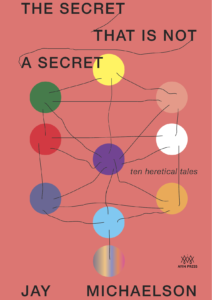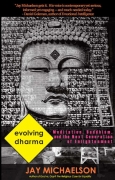Buddhism and New Technology | Shanghai
at
Shanghai, China
More Info / Registration
This cutting-edge conference will bring together an international meeting of the minds to explore Buddhism & Robots, Artificial Intelligence, Neuroscience, Virtual Reality, Meditation Apps, and much more. Â Dr. Michaelson will be among the speakers; conference will be held in Shanghai, P.R. China. This is an independent conference run exclusively by Woodenfish Foundation without other affiliations. Â For more information and to find out how you can get involved, please contact buddhatech@woodenfish.org.
Conference overview:
Neuroscience, computer science, and other new technologies promise to revolutionize every area of our lives. These promises also extend to our personal and spiritual lives—our happiness, our well-being, our enlightenment. Buddhism’s long advocacy of “technologies of awareness†makes it only natural that it embrace these new technologies as well. Indeed, the interchange among them, especially psychology, neuroscience, and physics, has gone from a trickle to a virtual flood. Beginning millennia ago when ÅšÄkyamuni Buddha developed meditation techniques to foster the awakening that he sought—and that are today known throughout the world—this conversation is more important than ever in today’s turbulent world. Tantric practices, visualization exercises, aesthetic practices, and a vast number of other contemplative technologies have been continuously developed, refined, and practiced over the thousands of years of Buddhist history and multiple cultures that have embraced Buddhism. The influence of our mind on every aspect of our physical lives is well accepted in today’s science, and Buddhist practices to that end are also well studied. However, we are very interested in the possibility that in the not-to-distant future we might go from the (now standard) “Change your mind, change your brain†view to something more like, “Change your brain, change your mind.†In other words, we are intrigued by the neurophysiology of “meditate like a Zen master at the push of a button.â€
There are many products and plans that promise to duplicate the contemplative experiences that the Buddhists have been pursuing for millennia, and we think that it will be interesting and even fun to think about these things a little bit more systematically. Is it really possible to skip the thirty years meditating in a cave? What are the risks and ethical implications of the “science of happiness,†the neurophysiology of the “lama in the lab,†especially in relation to traditional Buddhist techniques for enhancing human well-being? If there were a pill that exactly duplicated Buddha’s awakening, would you take it? Really? Cyborgs to meditation apps to wearable computers to pharmaceuticals to ethics, all in the service of awakening—these are the topics for symposium. Neuroscience or neuro-phrenology? Buddhism or Buddhism-lite? Hollywood? Business? Join us and find out.














